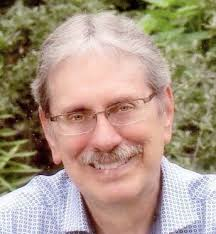I had the absolute pleasure of performing with Bill Lacey one last time this past summer when the Circle Theatre mounted a reunion production of the original Phil’s Diner script by Doug Marr. I had not seen Bill in years, but rehearsing our first scene together was like we had left off, just yesterday. It was joyful to work again with this actor who brought such talent, honesty and professionalism to his craft.
Bill passed away on October 4th at the age of seventy-three. After I got over the shock of his passing, I remembered this summer and how happy Bill was to be acting again in the diner with old friends, and I also thought about how important Bill had been to me and to so many other Omaha artists.
Bill Lacey worked with, and influenced, some of Omaha’s most talented, as a teacher, director, producer and friend. He taught acting and directing at the University of Nebraska at Omaha from 1979 to 1983. During that time, he directed many memorable productions, including The Little Foxes, The Importance of Being Earnest, Moon for the Misbegotten and Waiting for Godot. The last two were both selected to be performed at the American College Theatre Festival. They were chosen because, like all of Bill’s productions, they were solid and well-crafted, featuring talented artists and well-conceived concepts. Working on a Bill Lacey production was always a lesson in how to do theatre right.
After Bill left UNO, he was one of the twelve of us that founded the Circle Theatre. Bill served as the company’s artistic director, and he directed many of the theatre’s early plays, including the original touring production of Looks Good From the Road as well as the nationally-recognized Phil’s Diner series that gave light to nine of Doug Marr’s original scripts over a three-year period.
Bill was also a talented actor. His character in the Phil’s Diner Series, Al the Cook, was always an audience favorite because of the honesty and clarity that Bill brought to the role. Bill brought that same honesty to his direction and to his teaching. He was always straight with you. He told you what you did well, but more importantly, he was willing to tell you exactly what you needed to do to improve—and so you learned.
Later, Bill taught communications at Iowa Western Community College where he influenced another generation of students. Many of his IWCC colleagues were in attendance at the memorial service. They shared glowing tributes that echoed those of this Omaha following. Bill’s wife, Alice, and his life-long friend, Bob Hall, and also shared their memories of Bill and of his passion for life. At the end of the service, we all said thanks by singing for Bill, one last time, his favorite Beatles song, Let it Be.
I know I speak for a great number of other Omaha artists when I say that I learned a lot at the foot of Bill Lacey. I cherish his memory, the lessons he taught me, his friendship, his craft and the legacy he leaves behind in the Omaha theatre community.
In Memoriam Bill Lacey

